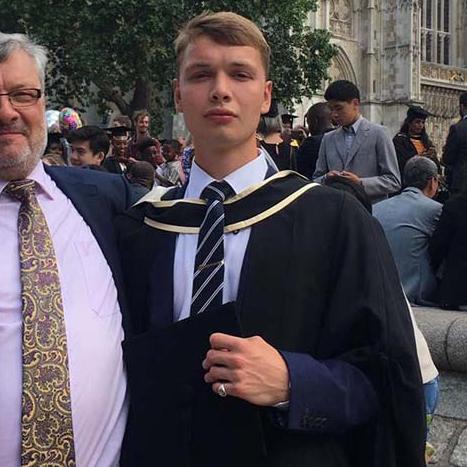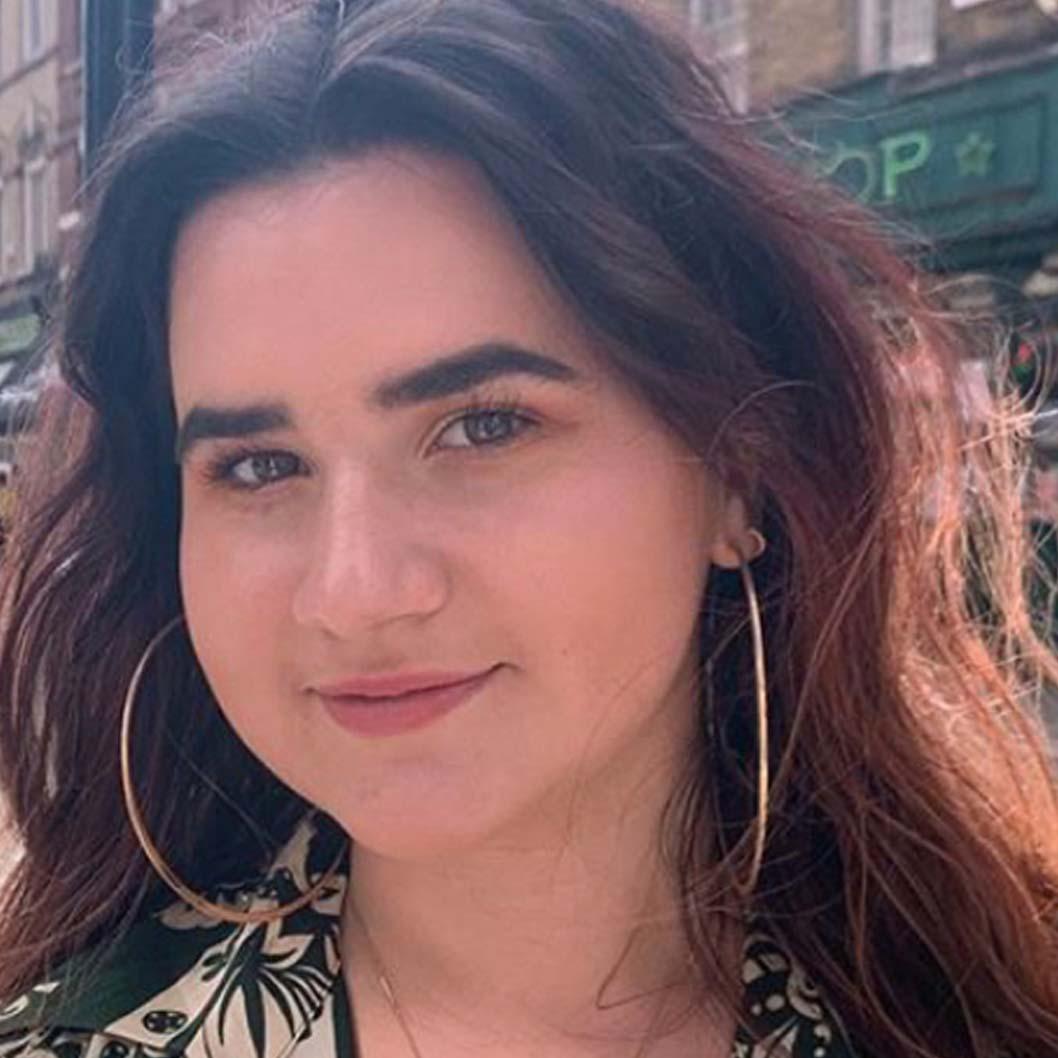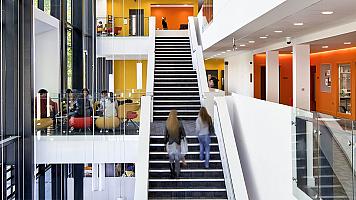BSc (Hons)
Economics
This degree offers you rigorous and relevant training in economic theory, economic history, modelling, coding, statistics, and econometrics with real-world applications.
Content navigation menu
Why study BSc Economics at Goldsmiths
- You’ll be given rigorous training in economic theory and a range of quantitative techniques.
- It provides a deep understanding of economic contexts, so that you can use the most appropriate data and techniques for each problem you address.
- You'll investigate broad empirical questions that explore the different uses of data within economics and the social sciences.
- It offers an understanding of the real-world context of economics. So that you'll be able to effectively use data and techniques to solve key empirical problems in today’s economy.
- London is the financial hub of the UK and you will have access to today’s best business leaders, economists, and policy practitioners.
- It gives you access to a wide range of jobs in consultancy, finance, data analysis, and government.
- You will study in small groups and will be assigned a personal tutor during the three years of your undergraduate degree. Your tutor will meet regularly with you, follow your progress, and help whenever you need. See what our students say about the small-group teaching environment.
- Through the UK Turing Scheme you can spend half of your second year at a university in Europe. You will attend modules, experience a different culture and academic environment, and could learn a new language.
Contact the department
If you have specific questions about the degree, contact Tomás Rotta.
UCAS code
L100
Entry requirements
A-level: BBB
BTEC: DDM
IB: 33 points overall with three HL subjects at 655
Length
3 years full-time
Fees
Home - full-time: £9250
International - full-time: £19640
Department
Watch videos about this course
What you'll study
Year 1 (credit level 4)
In your first year, you'll take the following compulsory modules:
| Module title | Credits |
|---|---|
| Introductory Economics | 30 credits |
| Economic Reasoning | 15 credits |
| Interdisciplinary Perspectives on the Economy | 15 credits |
| Mathematics for Economics and Business | 30 credits |
| Identity, Agency & Environment 1 | 15 credits |
| Identity, Agency & Environment 2 | 15 credits |
Note about optional modules (if available): The above is indicative of the typical modules offered, but is not intended to be construed or relied on as a definitive list of what might be available in any given year. The module content and availability is subject to change.
Teaching style
This programme is taught through scheduled learning - for example through a mixture of lectures, seminars and workshops. You’ll also be expected to undertake a significant amount of independent study. This includes carrying out required and additional reading, preparing topics for discussion, and producing essays or project work.
How you'll be assessed
You’ll be assessed by a variety of methods, depending on your module choices. These may include coursework, examinations, group work and projects.
Note
Please note that, due to staff research commitments, not all of these modules may be available every year.
Entry requirements
We accept the following qualifications:
A-level: BBB
BTEC: DDM
International Baccalaureate: 33 points overall with three HL subjects at 655
Access: Pass with 45 Level 3 credits including 30 Distinctions and a number of merits/passes in subject-specific modules
Scottish qualifications: BBBBC (Higher) or BBC (Advanced Higher)
European Baccalaureate: 75%
Irish Leaving Certificate: H2 H2 H2 H2
Alternative qualifications
See our full list of undergraduate entry qualifications.
We welcome students with a range of educational experiences. If you believe you may not meet the standard qualification requirements we would still encourage you to apply because we consider all aspects of your application when making a decision.
We’ll pay particularly careful attention to your personal statement, which is your opportunity to demonstrate your interest in the subject you’ve applied for. Your referees are also welcome to include any relevant contextual comments around your academic achievements. We’ll look at all these things when making a decision on your application, as well as your qualifications and grades.
International qualifications
We also accept a wide range of international qualifications. Find out more about the qualifications we accept from around the world.
If English isn’t your first language, you will need an IELTS score (or equivalent English language qualification) of 6.0 with a 6.0 in writing and no element lower than 5.5 to study this programme. If you need assistance with your English language, we offer a range of courses that can help prepare you for degree-level study.
Fees and funding
Annual tuition fees
These are the UG fees for students starting their programme in the 2024/2025 academic year.
From August 2021 EU/EEA/Swiss nationals will no longer be eligible for 'Home' fee status. EU/EEA/Swiss nationals will be classified as 'International' for fee purposes, more information can be found on our fees page.
- Home - full-time: £9250
- International - full-time: £19640
If your fees are not listed here, please check our undergraduate fees guidance or contact the Fees Office, who can also advise you about how to pay your fees.
It’s not currently possible for international students to study part-time if you require a Student Visa, however this is currently being reviewed and will be confirmed in the new year. Please read our visa guidance in the interim for more information. If you think you might be eligible to study part-time while being on another visa type, please contact our Admissions Team for more information.
If you are looking to pay your fees please see our guide to making a payment.
Funding opportunities
We offer a wide range of scholarships and bursaries, and our careers service can also offer advice on finding work during your studies. Find out more about funding your studies with us.
Additional costs
In addition to your tuition fees, you'll be responsible for any additional costs associated with your course, such as buying stationery and paying for photocopying. You can find out more about what you need to budget for on our study costs page.
There may also be specific additional costs associated with your programme. This can include things like paying for field trips or specialist materials for your assignments. Please check the programme specification for more information.
What our students say



Careers
Our well-rounded students go into a wide range of roles across different industries. We have students going into more traditional economist roles such as finance, investment banking, the civil service, development agencies and economic consulting. However, we also have some that go on to teach as well as alumni going to work in organisations as diverse as Warner Music Group, The Ministry for Justice, marketing agencies and even starting their own business.
Jobs include:
- M&A analyst at Ackroyd Legal,
- Equity risk analyst intern at Kings Investment Fund,
- Foreign exchange trader at TY Assets,
- Head of Strategy at Dual International,
- Consulting analyst at Deloitte,
- Rewards analyst at Wills Tower Watson,
- Assessment team lead at BPP,
- Business and finance analyst in the Civil Service Fast Stream,
- Public health intelligence analyst at Public Health England
- Assistant economist at Department for Transport
We believe employability and becoming career-ready should be an absolutely integral part of your time with us. We will work with you to help you discover the kind of role that might be right for you, how to access those opportunities and then how to market yourself effectively into the role and be successful.
Core elements of our offering are about helping you get career-ready early on in your second year so you are well placed to secure a placement or internship in the summer, an all-important step to securing that dream graduate role.
We have two second-year optional modules you can select:
Developing an Employability Strategy Module (credit-bearing) will take you through the employability journey. What kind of skills and motivators do you have, what kind of role and industry might be right for you and how to successfully market yourself into those roles?
Work Placement Module (credit-bearing): gives you real-life experience in industry. A work placement will help you expand your network and provide valuable insights into the world of work. Some students have gone on to receive a graduate offer just after their placement.
Find out more about we can help you with your career
Skills
This degree equips you with an array of skills that will help you stand out in the marketplace and launch your career. Through our modules you will learn economic theory and application, and practice your skills in writing, presenting and data analysis.
The structure of this programme of studies also equips you with the following skills:
- An ability to explain economic ideas to non-economists in government and the business world
- A knowledge of the limits of economic models for analysing real-world data
- An understanding of the economy that can meet new challenges and unforeseen crises
- A personal philosophy of how the economy works that distinguishes you from the crowd
You'll also gain skills in teamwork, time management, organisation, critical thinking, reflection and independent research. All of these skills are greatly sought after by graduate employers.
Facilities
We are proud to be associated with one of the most important libraries in the history of economics and business in the world, the Goldsmiths’ Library of Economic Literature. This is the main collection in Economics literature in Senate House Library.
Find out more about the Library's History on the University of London website.
Research
The Institute of Management Studies is highly interdisciplinary and has academics researching not only in Economics and Political Economy, but also in Consumer Theory, Management, Business Psychology, Strategy, Innovation and Entrepreneurship.
Economics lecturers at Goldsmiths have recently completed a project called Economics: Past, Present and Future, a website produced used across universities in the UK that features interviews with celebrated economists such as Sheila Dow, Geoff Harcourt, K. Vela Velupillai, Anwar Shaikh, Jayati Ghosh, Charles Goodhart, Tony Lawson, Julie Nelson and Ha-Joon Chang.





